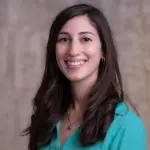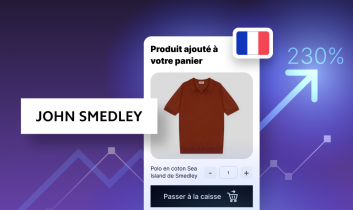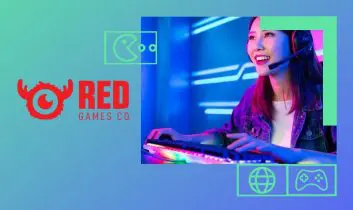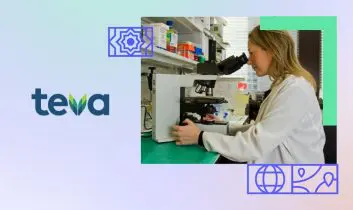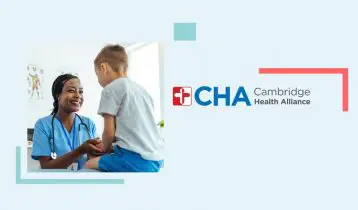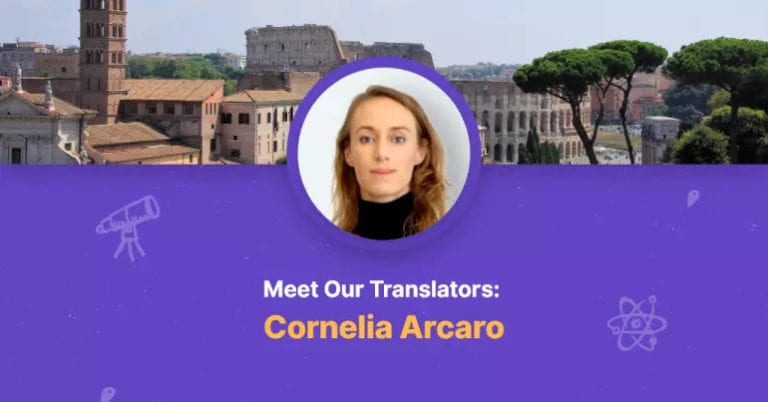
Meet Our Translators: Cornelia Arcaro
Introducing Getblend “Meet Our Translators” series! We want to give you some insight into the lives of our talented linguists who work so hard every day to give you the best translation and localization results.
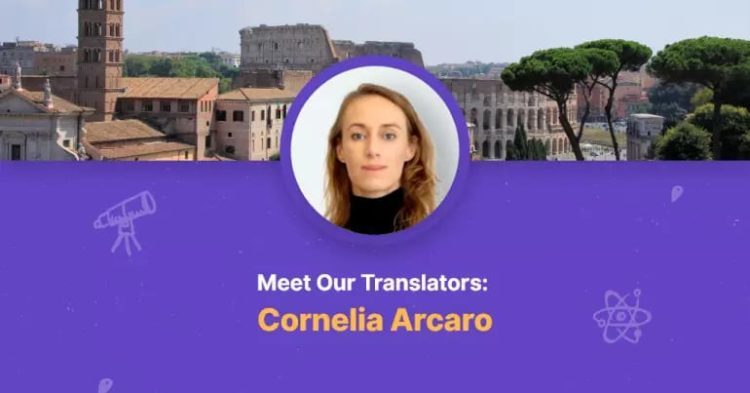
Meet Cornelia Arcaro
Cornelia’s mother tongue is German, and she lives in Italy, so she primarily translates from Italian, English, and French, into German. She has been working as a translator since 2016 – when she isn’t pursuing her research in astrophysics or teaching Argentine tango.
Where are you from originally and where do you live now?
I grew up in Germany where I studied engineering physics, and now I live in Padua, Italy. I came here to do my PhD in physics, then met my husband here and never left.
What languages do you speak and work with?
I translate English, French, and Italian to German, and some German to Italian (my husband is a native speaker, so we collaborate). I used to know some Spanish, but I had to try to forget it to learn Italian. Now, when I speak Spanish I speak it with an Italian accent and Spanish speakers assume I’m native Italian.
I’ve had Germans say I speak German with a French accent, which simply isn’t true, and foreign scientists assume I’m Italian and are very impressed with my excellent German.
I would describe myself as a linguistic chameleon. I have some experience in lyrical singing which requires adapting to foreign languages and getting pronunciation right, but also requires modulating your mouth for singing at the same time. I have a musical ear (I’ve been playing piano since I was 4 years old) so picking up the correct pronunciation is quite easy for me.
“I would describe myself as a linguistic chameleon.”
How did you learn those languages? I studied English and French in school. I took eight years of intensive English and five years of French. After finishing my A-Levels, I spent seven months doing English and French language immersion courses in Canada. Plus, I worked as a telemarketer there, which was really good practice for my English. As for Spanish, I took a few courses when I was in university, but the biggest boost to my Spanish was that I lived in La Palma, in the Canary Islands, for two months.
When did you become a translator and join One Getblend?
I began working as a translator in 2016 and have been working with Getblend ever since the beginning. One day, my husband suggested I offer German lessons to our local Italians, and I liked the idea, so I advertised on an online message board. The local international language school saw my post and asked me to do some translations for them. It just took off from there and I started working with OHT. I do my translation work during my breaks from my physics research.
What preparation or ongoing training do you find most useful in your work?
I use all these languages all the time in my work, so I keep up-to-date pretty easily. My physics research is always in English or Italian. I also teach in Italian at the lab and travel a lot for work, including presenting to scientific audiences. Perhaps more interestingly, I give guided multilingual tours at the Museum of the History of Physics. It sounds like an unusual tourist attraction, but Galileo did some of his most famous work in Padua. I also taught tango for ten years, until Covid, so I was using all these languages actively in a lot of different contexts. There’s nothing like actually speaking the language out in the world to help keep up your skills.
What translation tools and resources could you not live without?
I rely most on online dictionaries and occasionally turn to Google Images when I’m unfamiliar with a term. Of course, the technical side of the job has me using Adobe for PDFs to maintain layout and Word – I’m especially grateful to its spellchecker and word counter. In fact, all of the Office applications are useful.
What’s the most challenging or most interesting project you’ve ever worked on?
One of my first jobs was about the transfer of real estate between parents and children, specifically, making a gift of property. That involved lots of geological, architectural, and legal terms I wasn’t familiar with. I also translated for an adult entertainment site and found out about a lot of…exotic preferences.
What makes working in your language pair different from working with other language pairs?
German is known for very long sentences. A snappy sentence in English can become quite wordy in German. Also, the grammar and sentence structures of German, Italian, and English are all very different, which can affect layout and design.
How do you think local cultures affect your work as a translator?
German and Italian cultures tend to be more polite and formal than English – that’s a real cultural difference that has an impact on the language. If nothing else, knowing how to address people formally and politely is essential.
What does a typical workday look like for you?
I pretty much always have the OHT site open throughout the day, so I can be available for small jobs as they come in. I liked when it had a little bing sound. I’m at my computer all the time anyway, for my research, reading, and preparing lectures. When a job comes in, I usually do it immediately. I’ll do more translation whenever I have free time, whether on the bus, on the train, or even while I’m on duty at night operating telescopes and monitoring the observations. Those nights are when I handle a lot of English to German translations.
Do you have any tips for other translators?
I recommend being open to any topic. You’ll expand your knowledge, it’s interesting, and it opens the doors to more translation jobs.
I find it to be very satisfying to translate well, especially when it’s on a topic I knew nothing about before. Be open-minded.
Of course, you should also ACTUALLY know the language. Studying it at the secondary school or even university level is not enough – I believe you need to have lived in the country. You need to dive in and become so immersed in it that you can think in that language.
If you weren’t a translator, what job would you want?
Beyond the research I do, I’d love to be a professional tango dancer. I met my husband on the dance floor. I’d also love to be a wedding planner – I loved planning my wedding. I’m fascinated by everything in fashion or beauty, and I really appreciate all things that have to do with creativity. Plus, all of these jobs eventually require using languages, which is attractive to me.
Can you tell us a little more about your research?
My astrophysics research is based on observations of gamma rays, which are the most energetic photons emitted by objects in our universe, such as black holes. These photons are much more powerful than any photon that could ever be observed in a human-built particle accelerator, such as the Large Hadron Collider at CERN. The main goal is to disentangle the acceleration mechanisms at work causing the emission of gamma rays in these astronomical sources.
Because of the very low flux of gamma rays, you need telescopes with very large light-collecting surfaces. For example, the mirror dish of one of the largest telescopes used for gamma-ray observations has a 28-meter diameter. Moving something that big while staying precise is a huge challenge. If the telescope pointing is off by even a few hundredths of degrees it is enough to affect your observations and can become a huge deal in your data analysis.
I’ve won a few fellowships and in 2011 I won the German Physical Society’s Georg Simon Ohm Prize for my diploma thesis. More recently, I won the H.E.S.S. award for developing models for correcting pointing imprecisions, for example due to deformations in the telescopes’ structures and other hardware issues. The H.E.S.S. collaboration is a project I was involved in for three years and it was really special to have my work and my dedication recognized that way.
What’s your favorite part of your job as a translator?
I enjoy my encounters with new people, new places, and new things. Translations let me get a brief window into someone else’s life or insights into fields that I would never have encountered otherwise. I get to learn about new topics that are not on my radar but are important to my clients.
Need fast, high-quality translation?
Translate nowWhat our customers are saying





